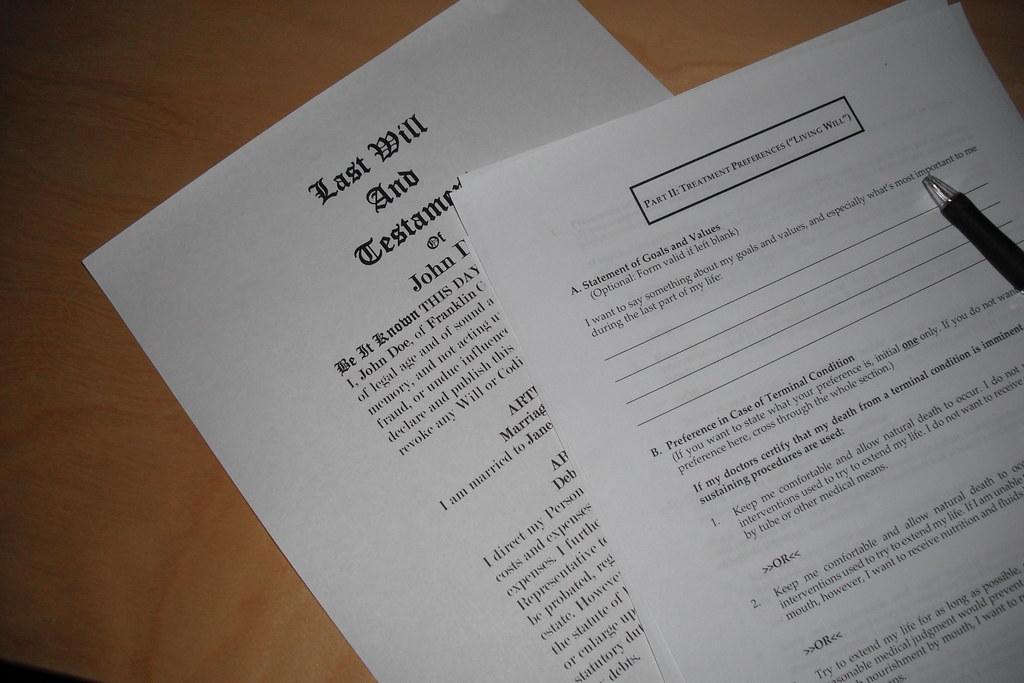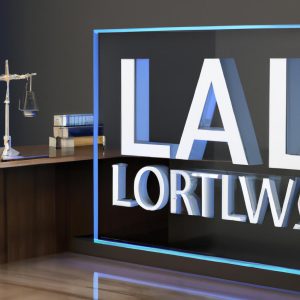In the complex world of estate planning, the absence of a valid will can often result in a complicated and contentious aftermath. Without clear instructions left behind by the deceased, the distribution of assets can become a tangled web of legal proceedings and familial strife. As experienced practitioners in the field of estate law, the Morgan Legal Group navigates these treacherous waters with precision and expertise. Let us unravel the mysteries of what happens when there is no valid will, and shed light on the importance of proper estate planning.
Intestate Succession in New York State
When a person passes away without a valid will in New York State, they are considered to have died intestate. This means that the distribution of their assets and property will be determined by the state’s laws of intestacy. In such cases, the court will appoint an administrator to oversee the distribution of the deceased’s estate. It is important to note that without a will, the deceased’s wishes may not be honored, and their assets may not go to the intended beneficiaries.
One of the major implications of dying intestate is that the estate will be distributed according to the state’s laws of intestacy. This means that the assets will be divided among the closest living relatives, such as spouses, children, parents, and siblings, in a predetermined order. Without a will to specify how the assets should be distributed, there may be disputes among family members, and the process can become lengthy and costly. It is crucial to consult with an experienced estate planning attorney to avoid the implications of dying intestate and ensure that your wishes are carried out.
Distribution of Assets According to New York Intestacy Laws
When an individual passes away without a valid will in New York, their estate will be distributed according to the state’s intestacy laws. These laws dictate how assets are divided among surviving family members based on their relationship to the deceased. It is important to understand these laws to ensure that your assets are distributed in accordance with your wishes.
Under New York intestacy laws, if the deceased is survived by a spouse and children, the surviving spouse will inherit the first $50,000 of the estate, plus half of the remaining assets. The children will then inherit the other half of the remaining assets equally. If the deceased is survived by only a spouse, the spouse will inherit the entire estate. If there is no surviving spouse or children, other relatives such as parents, siblings, or nieces and nephews may be entitled to inherit the estate in varying percentages.
Challenges Faced by Heirs in the Absence of a Valid Will
In the absence of a valid will, heirs can face various challenges that can complicate the distribution of assets and create disputes among family members. One common challenge is determining who are the rightful heirs according to state intestate laws. This can lead to disagreements and potential legal battles over inheritance rights.
Another challenge faced by heirs in the absence of a valid will is the lack of clear instructions on how the deceased’s assets should be distributed. This can result in confusion and delays in the probate process, as the court may need to step in to determine how to divide the estate. Without a valid will, heirs may also miss out on the opportunity to minimize estate taxes and ensure that their loved one’s wishes are carried out. It is crucial for individuals to create a valid will to avoid these challenges and ensure a smooth transfer of assets to their heirs.
Importance of Consulting with an Estate Planning Attorney in New York
Ensuring that you have a valid will in place is crucial to properly distribute your assets according to your wishes after you pass away. However, if there is no valid will, the state of New York will determine how your assets are distributed through intestacy laws. Consulting with an estate planning attorney in New York can help you avoid this situation and ensure that your assets are distributed as you intend.
Without a valid will, the court will appoint an administrator to oversee the distribution of your assets according to state laws. This process can be time-consuming, costly, and may not reflect your true intentions. By working with an estate planning attorney, you can create a comprehensive estate plan that includes a valid will, trusts, and other important documents to protect your assets and ensure your loved ones are provided for after you pass away.
Q&A
Q: What happens if a person passes away without a valid will?
A: If a person dies without a valid will, their estate will be distributed according to the laws of intestacy in their jurisdiction.
Q: What is intestacy?
A: Intestacy is the legal process by which the assets of a deceased person are distributed if they did not leave a valid will.
Q: Who decides how the estate is distributed in intestacy?
A: The laws of intestacy dictate how an estate is distributed, typically starting with immediate family members such as a spouse, children, parents, and siblings.
Q: Are stepchildren entitled to inherit in intestacy?
A: Stepchildren may or may not be entitled to inherit in intestacy, depending on the laws of the jurisdiction and the relationship they had with the deceased.
Q: How does intestacy affect unmarried partners?
A: If a person dies without a valid will and is unmarried, their partner may not automatically be entitled to inherit from their estate in intestacy, regardless of the length of the relationship.
Q: Can a person’s wishes be honored if there is no valid will?
A: Without a valid will, a person’s wishes for the distribution of their assets may not be honored, as the laws of intestacy prioritize blood relatives over other individuals or entities chosen by the deceased.
Q: What can be done
 What happens if there is no valid will?
What happens if there is no valid will?
The death of a loved one is a difficult and emotional time for all those involved. When someone passes away, their assets and possessions are typically distributed according to their last wishes, as stated in their will. However, what happens if there is no valid will? This can be a confusing and overwhelming situation for family members and loved ones, so it is important to understand the implications and consequences of not having a valid will.
In this article, we will explore what happens if there is no valid will, the process of distributing assets without a will, and practical tips for creating a will to avoid potential problems in the future.
Consequences of Not Having a Valid Will:
1. Intestacy laws apply
When a person passes away without a will, their estate is known as intestate. In this situation, the distribution of assets and possessions will be governed by the intestacy laws of the state. These laws vary from state to state, but typically, the assets will be distributed to the closest living relatives, such as spouses, children, parents, and siblings.
2. Long and complicated legal process
Distributing assets without a valid will can be a lengthy and complex process. The court will appoint an administrator to handle the estate, which can take several months or even years. This can cause unnecessary stress and conflicts among family members, as the process can often be drawn out and emotionally draining.
3. No control over who inherits your assets
Without a valid will, you have no say in who inherits your assets and possessions. This can be especially problematic for blended families or unmarried couples, as intestacy laws typically only recognize legal marriage and blood relatives.
4. Higher taxes and fees
Having a valid will can also help reduce taxes and fees on the estate. Without a will, the estate may be subject to higher taxes and legal fees, reducing the amount that can be passed on to loved ones.
What Happens to Specific Assets Without a Will:
– Real estate: In the absence of a will, real estate properties will be distributed according to the intestacy laws of the state. This can result in disputes among family members, especially if the deceased owned property jointly with someone who is not a spouse or immediate relative.
– Personal belongings: Without a will, the distribution of personal belongings such as jewelry, furniture, and other sentimental items can also be complicated. In this case, the court will distribute the assets according to the intestacy laws and may not necessarily reflect the true wishes of the deceased.
– Children: One of the most important aspects of creating a will is designating a guardian for minor children. In the absence of a will, the court will appoint a legal guardian based on the best interests of the children, which may not align with the wishes of the deceased.
Practical Tips and Considerations:
1. Create a will
The best way to avoid potential problems and ensure your assets are distributed according to your wishes is to create a valid will. This allows you to have control over who inherits your assets and who will take care of your children.
2. Review and update your will regularly
It is important to regularly review and update your will, especially if there are any major life changes. This includes getting married, divorced, or having children, as well as changes in financial circumstances.
3. Seek legal advice
Creating a will can be a complex process, and it is important to seek legal advice from an experienced estate planning attorney. They can help ensure your will is valid and properly drafted to avoid any potential legal complications.
4. Consider creating a trust
In addition to a will, it may be beneficial to create a trust to protect assets and reduce taxes. A trust allows you to transfer assets to loved ones while avoiding the lengthy and costly probate process.
In conclusion, not having a valid will can lead to numerous complications and conflicts for your loved ones after you pass away. It is important to take the time to create a will and regularly review and update it to ensure your final wishes are carried out. Seeking legal advice and considering other estate planning options such as trusts can also help protect your assets and minimize potential taxes and fees. Remember, it is never too early to start planning for the future.












